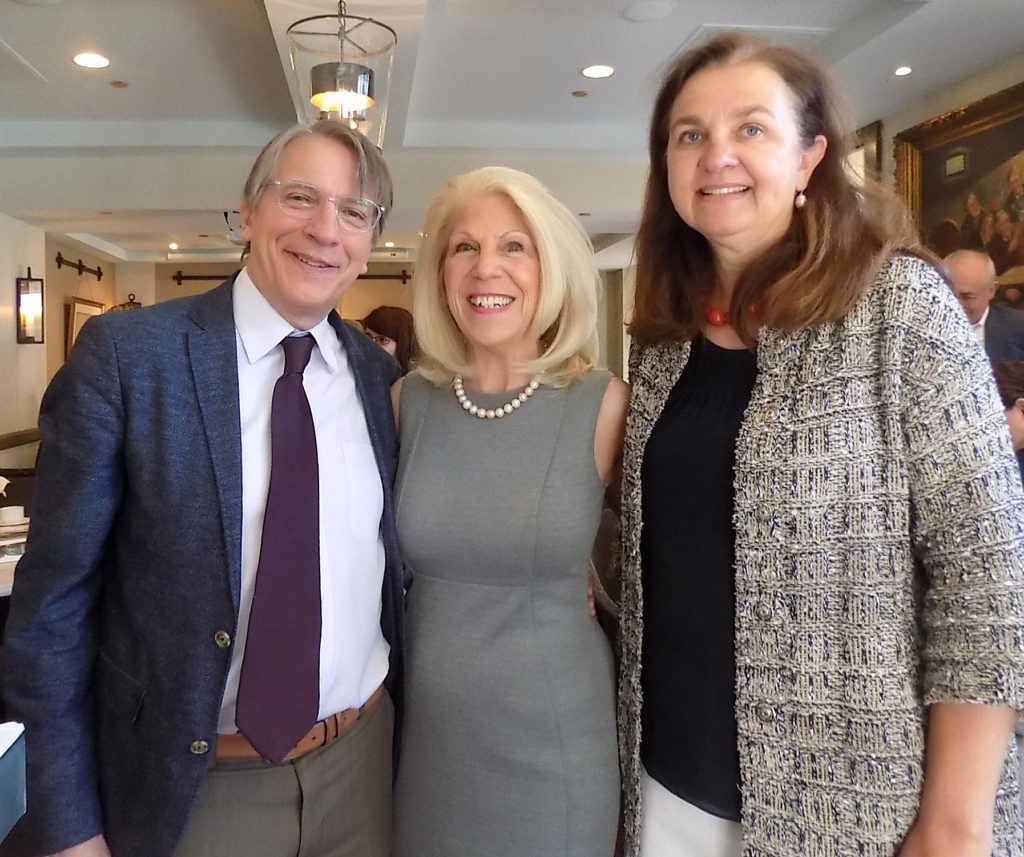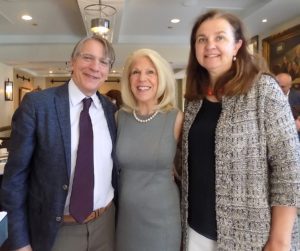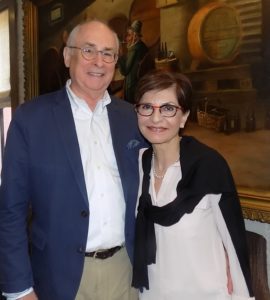Choral Arts Artistic Director Speaks in Georgetown
By • May 3, 2018 0 1188

Scott Tucker had been director of choral music at Cornell University for 15 years when Norman Scribner, founder of the Choral Arts Society of Washington, announced in 2010 that he would retire in two years. Seeking a new challenge and a change of scene, Tucker applied for and got the job.
The legendary Scribner, who, said Tucker, “cared more about Choral Arts than he did about his own ego,” helped smooth the transition, but died of a heart attack at age 79 in 2015.
At Georgetown Media Group’s May 3 Cultural Leadership Breakfast at the George Town Club, Tucker spoke about his first five years as Choral Arts artistic director and, movingly, about what motivated his change of career plans in his early 20s. Trained to become an orchestral trumpet player, he switched to choral conducting and got his master of music degree at Boston’s New England Conservatory.
Tucker told the audience about several months he spent decades ago in a “desperately poor” village in Kenya. The entire village would regularly gather and sing for hours (in a language he didn’t understand). “It just hit me like a ton of bricks,” he said. “This is what music is.”
According to Tucker, “Choral music is the ultimate expression of community.” As he told his students at Cornell and now tells the volunteer singers in Choral Arts (“They’re all people who have lives”): no audience member ever comes away from a concert and says: “Wow, that was so correct.” In other words, technical proficiency is just a means to an end, and that end is to inspire.
Though music has long been valued for its ability to provide connection, it is essential in today’s world, he said. “Our society is fractured. Our attention span is off-the-charts crazy.” Using the decline in NFL viewership, even by a certain New England Patriots quarterback, as an example, he commented: “If Tom Brady isn’t watching football, then we’ve got a problem.”
Tucker has expanded the symphonic Choral Arts Chorus, which — in addition to appearing frequently with the National Symphony Orchestra, has performed with the Philadelphia and Baltimore Symphony Orchestras and toured China — to more than 190 singers and added two choruses: the Choral Arts Chamber Singers, a flexible, traveling ensemble of about 30, and the Choral Arts Youth Choir, an all-star choir of area high school students.
He has worked to improve the main ensemble’s balance and the quality of the singing, pointing out that singing in a chorus is “a lot like being in a relationship, you have to take care of yourself first.” Choral Arts is at a crossroads, he said, asking itself how big it should get and if it should be a presenting organization.
One of the challenges he mentioned is how to differentiate Choral Arts from other groups in what is known as “the choral capital of the world,” such as the Washington Chorus, which has a “profile just like ours.”
Tucker does not believe that classical music is dying, remarking: “I’ve been told that every decade” since the 1970s. Neither does he believe in ranking musical genres. In response to a question about rap musician Kendrick Lamar winning a Pulitzer, he said, “I totally embrace it,” and asked, rhetorically: “Who wouldn’t agree that Beyoncé is a wonderful, wonderful artist?”
The Choral Arts Society of Washington is offering Georgetowner readers 15 percent off on tickets priced over $30 for the performance of Gioachino Rossini’s Stabat Mater on Saturday, May 19, at 3 p.m. in the Kennedy Center Concert Hall when purchased through the Choral Arts box office. This offer ends at midnight on Sunday, May 13. To purchase tickets, visit choralarts.org and use the code GEORGETOWNER.

Scott Tucker, artistic director of the Choral Arts Society of Washington, Woman’s National Democratic Club Senior Political and Media Advisor Kandie Stroud and Gertraud Hechl of Bonhams. Photo by Robert Devaney.

Danielle Horetsky of the National Gallery of Art, Kelly Sullivan of the Georgetown Media Group and April Angilletta, communication manager for the Choral Arts Society of Washington. Photo by Robert Devaney.

Uli and Mary Schlegel. Photo by Robert Devaney.

